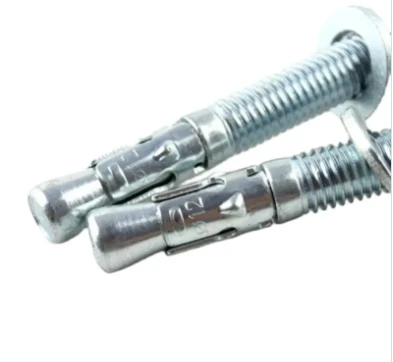Dec . 11, 2024 11:32 Back to list
expansion shell rock bolt
Understanding Expansion Shell Rock Bolts
In the field of civil engineering and mining, the stability and integrity of excavations are paramount. One of the solutions developed to secure rock formations and enhance their stability is the use of expansion shell rock bolts. These innovative fasteners have become an essential component in many engineering projects, particularly in underground and slope stabilization applications. This article explores the functionality, advantages, and applications of expansion shell rock bolts, shedding light on their importance in modern construction and mining operations.
What are Expansion Shell Rock Bolts?
Expansion shell rock bolts are specialized anchoring systems used to bond rock to a surrounding structure or other rock. They consist of a steel bolt with a shell that expands when a nut is tightened, anchoring the bolt securely within a drilled hole in the rock. The expansion of the shell creates a friction lock, ensuring that the bolt remains firmly in place under various loads and conditions.
These rock bolts are designed to accommodate different geological conditions and load requirements, making them versatile for various applications. They are available in various lengths, diameters, and materials, with the most common ones being made from high-strength steel to withstand significant tensile and shear loads.
How Do They Work?
The installation of expansion shell rock bolts begins with drilling a hole into the rock surface where support is needed. The bolt is then inserted into the hole, and the expansion shell is positioned within. By tightening the nut at the end of the bolt, the shell expands outward, pressing against the interior walls of the hole. This action creates a secure, stable anchor point that can hold considerable forces, effectively reducing the risk of rockfalls and collapses.
The design of the expansion shell enables it to distribute loads evenly over a larger surface area within the rock, enhancing the holding capacity compared to traditional bolts. Additionally, the load transfer mechanism helps maintain the stability of the surrounding rock mass, distributing stresses and preventing localization of failure.
Advantages of Expansion Shell Rock Bolts
1. High Load Capacity Expansion shell rock bolts can handle high tensile and shear loads, making them suitable for demanding applications in mining and civil engineering.
2. Versatility They can be used in various geological conditions, including hard rock formations and softer materials. The capacity to tailor the design based on project needs adds to their usability.
expansion shell rock bolt

3. Reduced Installation Time The installation process is relatively simple and fast, allowing for quick application in the field, which is particularly important in project timelines.
5. Long-Term Performance When installed correctly, expansion shell rock bolts provide a reliable and long-lasting solution for rock stabilization, contributing to the longevity and safety of structures.
Applications of Expansion Shell Rock Bolts
Expansion shell rock bolts are widely used in various projects, including
- Mining Operations Used extensively for ground support and stabilization in mines, helping to secure tunnels and reduce the risk of rockfalls.
- Slope Stabilization Essential in civil engineering projects where slopes need reinforcement, such as in roadworks, dam construction, and landslide protection.
- Tunneling Critical for supporting bored tunnels, ensuring that the excavation remains stable and safe during construction.
- Bridge and Highway Construction Employed to secure rock formations that might otherwise jeopardize the integrity of infrastructure projects.
Conclusion
Expansion shell rock bolts represent a significant advancement in rock stabilization technology. Their capacity to provide effective anchoring solutions across diverse applications underscores their importance in modern engineering practices. Whether in the depths of a mine or the sides of a highway, these bolts play a critical role in ensuring safety, stability, and sustainability in construction and geological projects. As engineering challenges evolve, the continued innovation and use of tools like expansion shell rock bolts will be crucial for future developments in the field.


